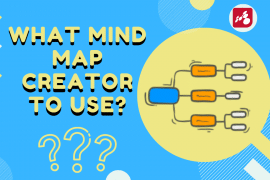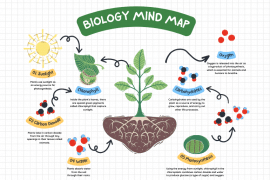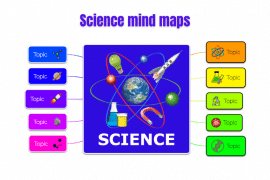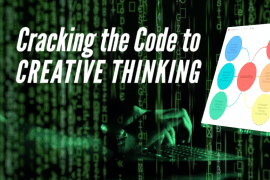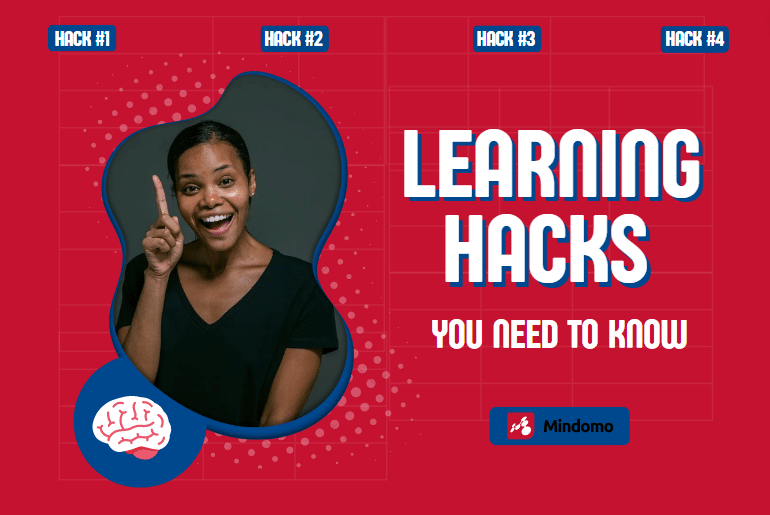
You may be wondering how to prepare for exam periods and may have heard of learning hacks. These are skills to help with your learning and can lead to success in your studies. In addition, these learning hacks can help with real-life situations beyond your learning skills or study sessions.
Basically, learning hacks help teach the brain to absorb knowledge in a new format or process. Before we look at some examples of learning hacks below, always understand that practice and focus are key. In addition, to improve the output of these hacks and overall productivity, you need to have a regular sleep schedule. A proper sleep schedule will help with these learning hacks, which will help you absorb concepts better.
Also, you want to use the right instrument, such as an education mind map, to help with organization. When looking at how to prepare for the exam, you’ll also want to learn about mind mapping. You’ll want to have the mindset to develop a mind map. In addition, you want to know the difference between a concept map vs. a mind map. A mind map helps to answer what is visual learning by showcasing information and data in a visual format. A concept map is a more focused version to help show relationships between various concepts.
Any learning hacks or studying hacks below need to include a break to help the body recharge. You are still learning a new skill here, so don’t get frustrated if you don’t see immediate results.
Examples of learning hacks
#1 Hack: Repetition with a real-life example
Let’s take a look at a real-life example of learning a foreign language. How to learn a new language? Whenever you’re looking to obtain new knowledge or new skills, repetition is key. What repetition does for learning helps students develop connections with the brain. Constant practice of a foreign language will also improve skills and knowledge of the subject. Basically, any skill in life used in repetition will help you learn it faster as you have more practice and experience with it.
The process of repetition can be quite boring for some, so having the right motivation can help. Knowing that repetition will have your mindset and brain eventually achieve the knowledge should be enough. The psychology behind the power of repetition evolving your brain is also enough motivation as well.
#2 Hack: Visual Aids
Visual learning is the most common way many of us learn. It only makes sense to prepare visual aids as part of your overall strategy for studying. Digital mind mapping software will help you with the organization of all your information and notes. You can develop your visual aids per topic or per subject and are basically able to access them with any computer.
It’s one of the hacks that transfers to the business world. In the business world, visual aids are always used for the same reason as when you’re studying. Whether for your university or your job, visual aids help to break down complex topics into more digestible pieces. You want to get into a routine that whatever notes you have or what you’re reading goes on the visual aids. It ends up being one of your best hacks and resources at the same time.
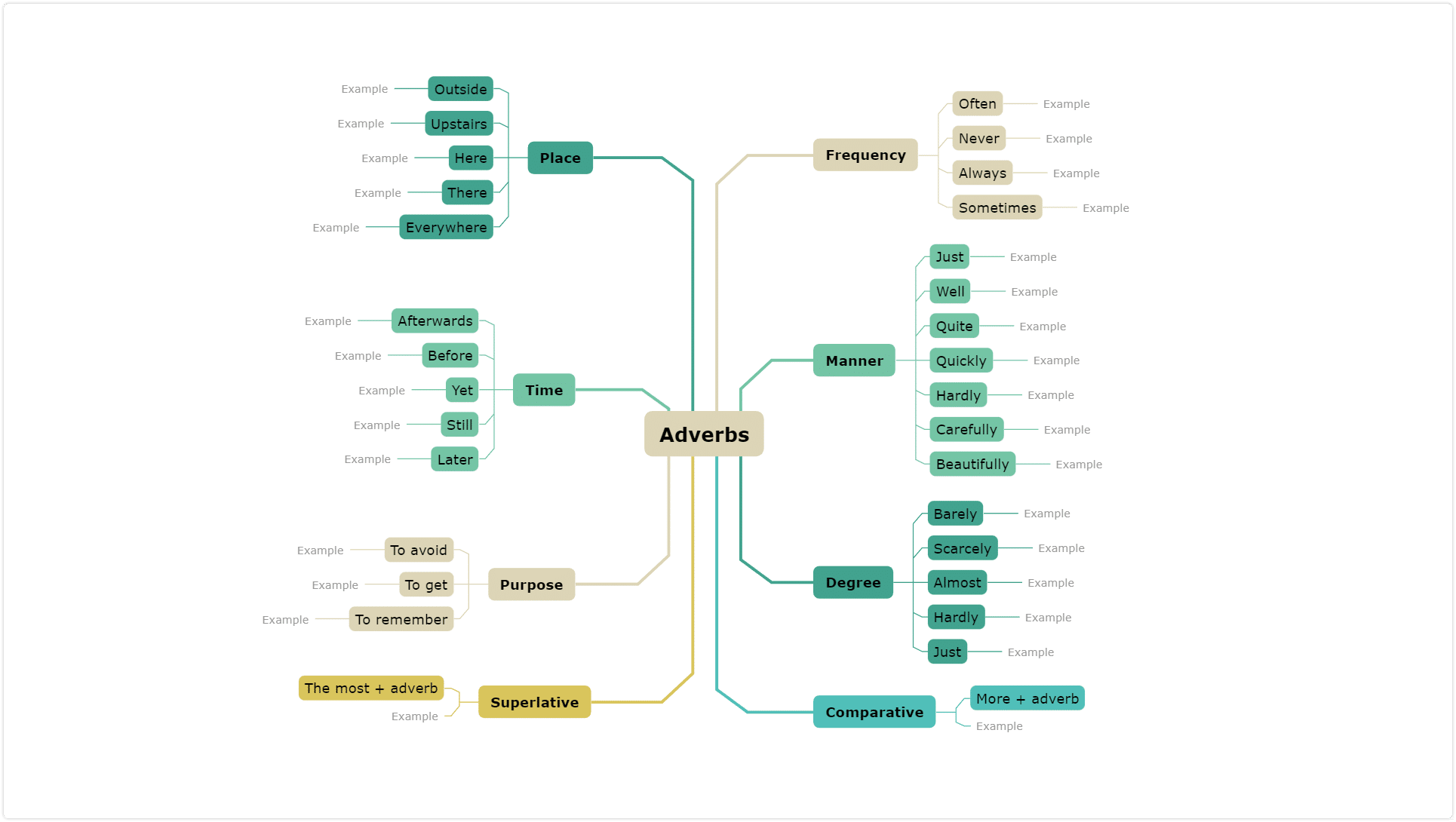
#3 Hack: Active Recall
This is one of the learning hacks that shows how powerful our brains are. The science in this matter continues to grow between what we learn and how our memory is affected. It’s also being researched how our memory is able to be recalled with the right amount of practice.
A great example is with some study sessions; for additional support, we make flash cards. These handwritten notes and definitions help us organize information into practice questions. When you work to retrieve that information, i.e., through trying to answer the question, that’s a form of active recall. You teach your brain to recall the information in your memory that will help you answer the question.
That means as you’re studying, that knowledge is being absorbed somewhere within your brain and being pulled out when needed. This can also work when you’re working with a different language than your mother tongue.
#4 Hack: Mnemonic Learning
The science behind mnemonic learning is that it helps students with their memory. The theory behind it is that you associate a set of information with a visual aid or with songs made up. You prepare a simpler way to recall your notes, your information, or other subject matter. You have probably already used the concept in your early childhood studies. Learning the song for your ABCs is one example. Your first complex math function was most likely PEMDAS, where you replaced the mathematical concepts with a common sentence.
Students don’t want to only stick to this with the many hacks out there because they need to memorize additional information. Essentially students learn the core knowledge and additional information to recall it.
Keep those new skills working after getting these learning hacks
Practice does make perfect, so after you teach yourself these hacks, keep using them. You’ll start to learn faster in the process, which leads to more success. Even within a week or two, you’ll boost your overall performance. Remember you’re learning a new skill, and so you want to have enough practice sessions. Even mastering one or two of these learning hacks will boost your confidence until it’s time to take the test.
Remember that learning hacks are best used when you start early and are organized. You want to learn about the best mind map examples for students and use a tool such as Mindomo. Getting the skills for mind mapping will only help boost how much you can achieve.
Of all the tips here, the best advice is a good night’s sleep. This helps to recharge the brain and have it rest. None of the hacks will matter if your brain cannot rest, as it won’t retain information well. If you cannot retain the information then the effect of these learning hacks is eliminated.
As with any learning, start slowly and see how your productivity improves week by week.
Keep it smart, simple, and creative!
The Mindomo Team

